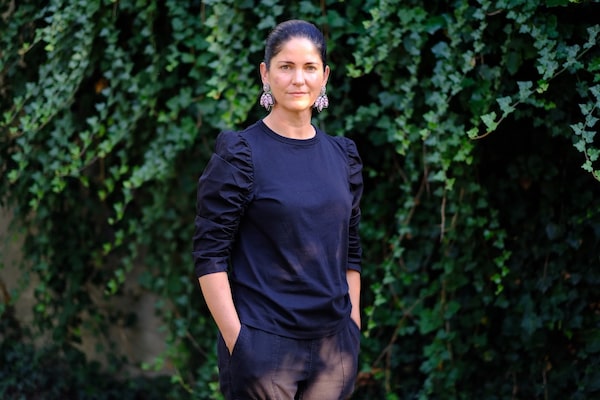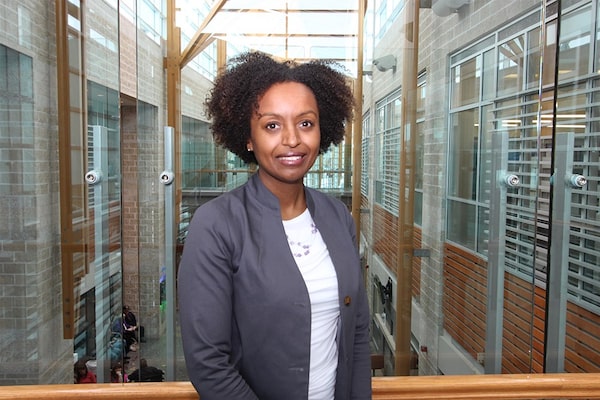How often do you hear stereotypes about your ethnicity or cultural background? Could you rent an apartment in your ideal neighbourhood and feel comfortable living there? How would you react if someone thought you were homeless?
Having doctors, nurses and other health professionals consider these questions can help improve health care for Indigenous women in Canada, according to the creators of a new online training program launched on Tuesday.
The program, called Hearing Our Voices: An Indigenous Women’s Reproductive Health Curriculum, aims to encourage those in health care, from medical residents to receptionists, to reflect on their own biases and learn about the experiences of Indigenous patients and clients.

Dr. Lisa Richardson is a strategic adviser in Indigenous Health at the University of Toronto's Faculty of Medicine.The Canadian Press
This type of education has largely been overlooked in health training, but is fundamental to building patients’ trust and helping them receive the care they need – especially when it comes to sensitive issues around reproductive health, says Lisa Richardson, strategic adviser in Indigenous health and associate professor at the University of Toronto’s faculty of medicine, who co-led the development of the program.
“It’s critical,” she says. Yet, “when you’re comparing it to sort of hard core basic science content, it’s not necessarily been viewed with the same level of rigour or interest.”
This attitude toward Indigenous health education is starting to change, however, Dr. Richardson says. Its importance has been amplified by the Truth and Reconciliation Commission, which called for mandatory training on Indigenous health issues for medical and nursing school students, as well as proposed class-action lawsuits on the forced sterilization of Indigenous women in Canada, which took place as recently as 2018, she says.
Understanding one’s own biases and where patients come from can mean the difference between having them return for further appointments and making them feel too uncomfortable to come back, says Naana Jumah, an obstetrician-gynecologist at the Thunder Bay Regional Health Sciences Centre and researcher at the Northern Ontario School of Medicine, who also led the development of the program.
It can also mean the difference between creating a practice where women feel safe and welcome and one where they feel they cannot openly discuss their issues, Dr. Jumah added.

Dr. Naana Jumah, an obstetrician-gynecologist at the Thunder Bay Regional Health Sciences Centre and assistant professor at the Northern Ontario School of Medicine.�/The Canadian Press
“One of the first principles about medicine is that we need to show care and compassion to our patients. And the way that we do that is by having an understanding of where they're coming from,” she said.
The program was created with the input of members from 11 different organizations across Canada, many of which were Indigenous women’s organizations. It consists of five learning modules, approximately 30 minutes each, which include lessons on self-reflection, the effects of trauma (including intergenerational trauma due to colonization and the residential school system), how to better communicate and traditional practices and cultural protocols.
While it is primarily intended for medical residents, anyone who works in health care can use it online, Dr. Richardson said.
Yolanda Wanakamik, a graduate student in education at Lakehead University in Thunder Bay, Ont., who helped develop the program, said it was important to highlight the voices of Indigenous women themselves. The modules include videos, in which Indigenous women discuss issues such as racial stereotypes and their experiences with childbirth.
“In terms of women’s reproductive health, there is nobody else who knows better than the women themselves,” she said, adding she hopes health-care professionals will continue learning about the history, culture and social determinants of health of Indigenous patients long after completing the training program.
In sharing their input, many Indigenous women expressed it was important for them to build a relationship with their health-care providers first, before sharing personal information about their health or proceeding with intimate examinations, Ms. Wanakamik said.
Many had the same message for health care workers, she added: “They want to be respected. They want to be approached in a kind way.”
Our Morning Update and Evening Update newsletters are written by Globe editors, giving you a concise summary of the day’s most important headlines. Sign up today.
 Wency Leung
Wency Leung